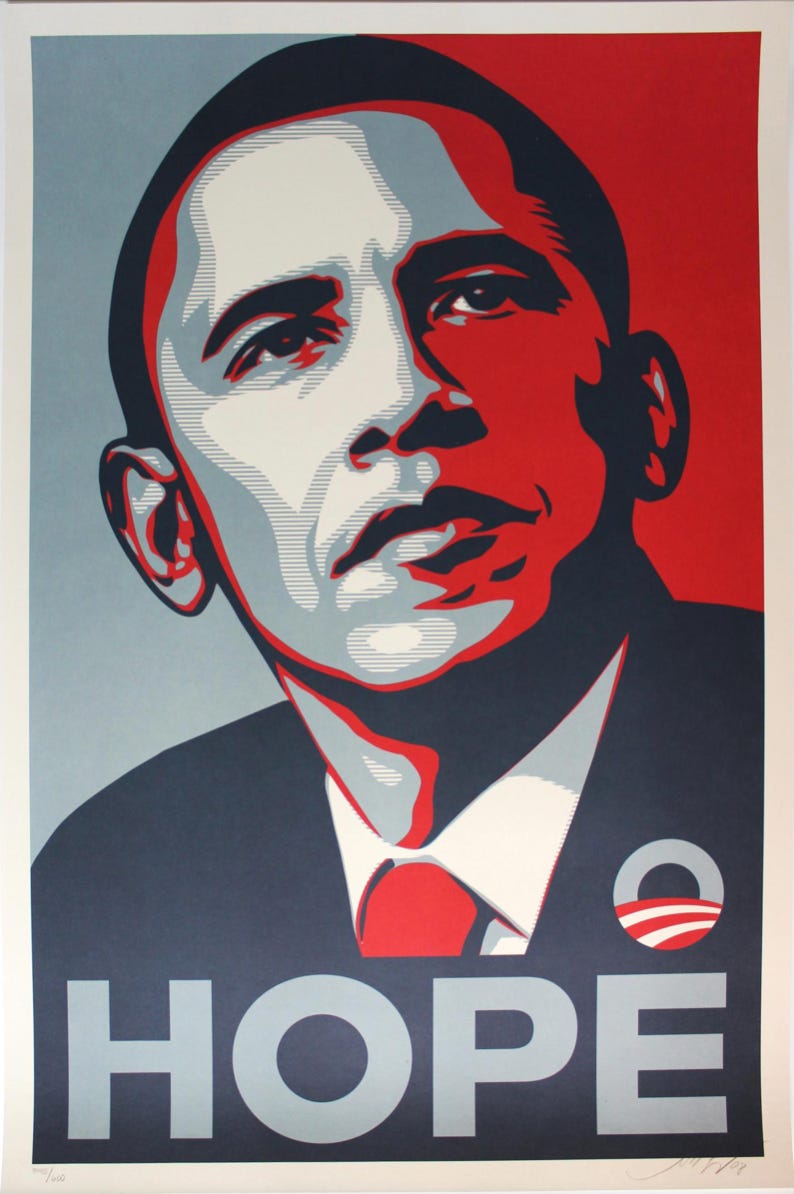Before Barack Obama ran for president, he wrote a book called “The Audacity of Hope.” It became a bestseller and set up the rationale for his campaign.
The notion of “hope” infused the political discourse in 2008. Obama spoke about it often on the stump. The word was featured in his iconic campaign poster.
Hope can indeed be audacious. It is bold. It is risky. It is believing that we can be better — healthier, happier, more just, more secure, more united, more understood.
Hope is aspirational. That's why it is often better suited for campaigning than for the rhetoric of governance. Turning ideas into policies that can pass through Congress requires compromise and not letting the perfect be the enemy of the good. There is seldom anything hopeful about seeing all the horse trading. But once implemented and proven successful, legislative measures can renew hope by reminding us that not only can we dream, but we can turn aspirations into action. Hope begets progress, which in turn begets more hope.
Today, however, I worry that too many in our country (and around the world) are struggling with a paucity of hope, despite the fact that the Biden administration has successfully implemented a number of tangible initiatives.
There are many understandable reasons for this absence of hope. And I suspect for our Steady community here, there is no need to repeat them in great detail. To summarize:
Our democracy is facing an existential crisis from within.
One of our two major political parties has been swept up in a dangerous cult of personality built on divisiveness, bigotry, and autocracy.
The midterm elections could see virulently anti-democratic candidates elected to positions in which they could undermine our democratic order in future elections.
There is anxiety around inflation and the economy.
Ever more extreme and damaging climate events are occurring.
Progress on racial justice, LGBTQ rights, academic freedom, and our civil and constitutional rights is being threatened, undermined, and reversed.
Lies spread quickly, and truth struggles to take root.
Each one of these concerns could be expanded to fill countless pages. Many more fears could be added to the list.
Meanwhile, the technological ecosystem in which we live bombards us with reminders of how bad things are. We doomscroll through social media. Our heart rates spike with the latest news alerts. We hash out our consternations in text chats and emails with friends and loved ones. Our phones buzz constantly, and often what we receive is the opposite of hopeful.
Hope wrestles with hopelessness in an anxious battle over our psyches. In times like these, hope can feel naive, a pollyannaish impulse that flies in the face of the realities we have no choice but to see swirling about us.
There was a time earlier this summer when hope flourished that the forces threatening our democracy could be defeated in the midterm elections. But recently, polling has shifted largely in favor of candidates who have pledged fealty to Trumpism and all the danger it represents. It is not being alarmist to worry deeply about what this means for the future of the nation.
However, the cumulative effects of hopelessness can become a feedback loop for more hopelessness. Elections, let us remind ourselves, are decided by actual votes, not by polls and media speculation. Maybe the polls, which have been wrong before, will be wrong again. But if voters are so despondent that they feel their activism is a lost cause, it will almost assuredly become a self-fulfilling prophecy.
Hope is like oxygen. It is necessary for human life. It is a force that pushes us forward with the belief that tomorrow is a new day. Those who have sought to demolish hope on their path to personal power have scored many victories of late. But they can be defeated as long as we can find ways to build and nurture hope, and as long as leaders can take that collective yearning and channel it into a movement for change.
While despair is contagious, so too is hope. It can be strengthened by realizing that others are in the struggle alongside us. It can be built through community and concrete actions. It can be made to feel urgent and essential.
Over the long arc of history, those who have bet against hope have often been wrong. Reason enough to keep hope alive, for this election and beyond.
Note: If you are not already a subscriber to our Steady newsletter, please consider joining us. And we always appreciate you sharing our content with others and leaving your thoughts in the comments.





Wonderful article, Dan and Elliott.
" But if voters are so despondent that they feel their activism is a lost cause, it will almost assuredly become a self-fulfilling prophecy. " Exactly. Always be determined to meet a challenge whatever it is. It never comes by chance. My dad used to say that pessimism was useless, lol, how right he was. Service to others is what we love doing, let's do it.
Much love to everybody here .
The "bandwagon effect" in politics happens in the absence of hope, when people come to believe that their side is losing and they need to get on the bandwagon of the winning side, or go silent. It's like lemmings going mindlessly over a cliff. Our lamestream media (looking at you, NYT, WaPo, and Steve Kornaki) would have us believe that the Trumpists are going to win Congress. But Michael Moore -- a current beacon of hope -- is betting that women and young people will defy the polling. Let's hope!